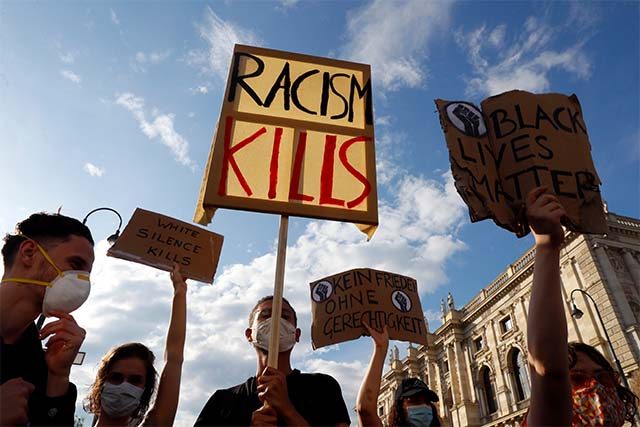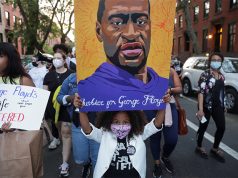
LONDON (Thomson Reuters Foundation) — Major brands taking to social media to condemn racial inequalities have been challenged to back up their words with action to tackle a lack of black leadership in many firms and entrenched racial pay gaps in the United States.
As protests against the death of an unarmed black man George Floyd at the hands of police sweep the nation and spark wider debates, dozens of major firms have shared online posts condemning racism and calling for change across society.
Campaigners, skeptical over what they fear are empty platitudes, have called for business leaders to put their money where their mouth is and tackle economic exclusion.
“The recent slew of anti-racism posts raised awareness, however, at this juncture we need action,” said Marc Banks, spokesman for the National Association for the Advancement of Colored People (NAACP) civil rights group.
“The posts are only performative, empty or hollow if that is where an individual’s activism ends … By demanding equity and equality for non-white communities, namely Black communities, brands can help create a better world and culture.”
As social media lit up with hashtags for Black Lives Matter and the #BlackoutTuesday campaign in support of protests, top companies – from entertainment giants to beauty firms and sports brands – shared posts calling for racial equality.
It could be a smart PR move – brands which speak out in support of the Black Lives Matter movement or donate to social justice causes are seen more favorably by consumers, found a poll by U.S. data and analysis firm Morning Consult.
But many fear firms are using the movement to gain clout without committing to advance equality in their own businesses.
“Thank you for your Black Lives Matter graphic. May I please see a picture of your executive leadership team and company board?,” tweeted Californian businesswoman Brandi Riley in a viral post responding to the trend.
Opportunity for change?
The Civil Rights Act of 1964 made it illegal for U.S. employers to discriminate based on race, yet black workers earn much less than whites and are underrepresented in top jobs, with just four black chief executives among the Fortune 500 firms.
Racial wealth gaps – largely driven by differing household incomes – feed into other inequalities, from housing to health and education, found Inequality.org, a project of the Institute for Policy Studies think-tank.
Firms can play a leading role in bridging “huge opportunity gaps” faced by many African-Americans, said Kenneth Frazier, chief executive of pharmaceutical giant Merck.
“There’s a lot to be done beyond the press release … businesses have to use every instrument at their disposal to reduce these barriers,” said Frazier, one of a handful of top-tier black U.S. executives, in an interview with CNBC news.
Although many firms’ statements are “quite superficial”, the fact they are speaking up about racism at all is something to celebrate, said Arwa Mahdawi, a New York-based brand strategist who also writes on justice issues.
“However, simply making a statement and going back to business as usual isn’t good enough,” she said.
“Big companies have a huge amount of power to catalyze change – that starts by changing themselves and removing systemic racism from their own organizations.”
Firms should take action by launching initiatives and policies that center black people, and by educating staff and customers on racial discrimination, said Banks of the NAACP.
Leadership must also recognize that wider cultures seep into workforces and back pledges of support with clear, structured plans to apply to their own firm, said Pamela Culpepper from diversity-focused business consultancy Have Her Back.
“This time feels different – and I think the companies that aren’t sincere will be called on the carpet by their employees,” she told the Thomson Reuters Foundation. —Reporting by Sonia Elks @soniaelks; Editing by Katy Migiro









